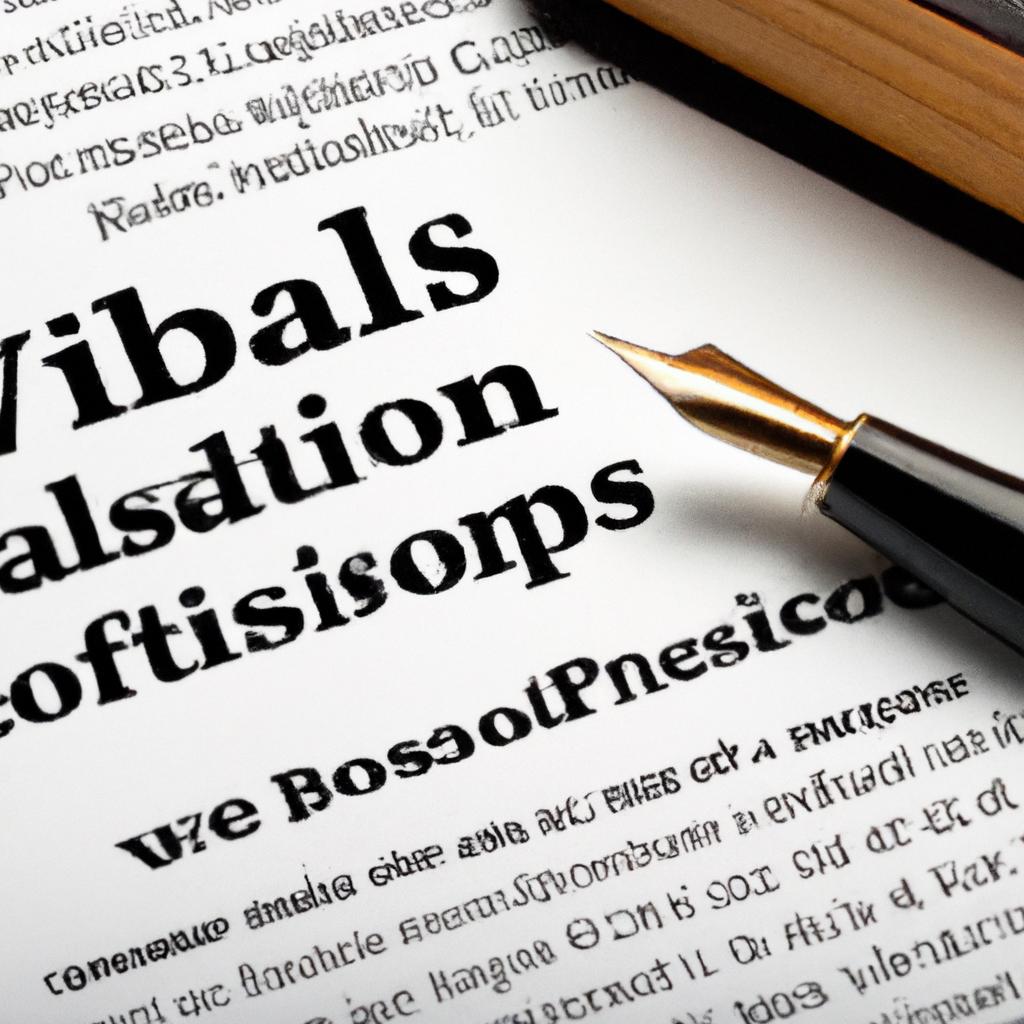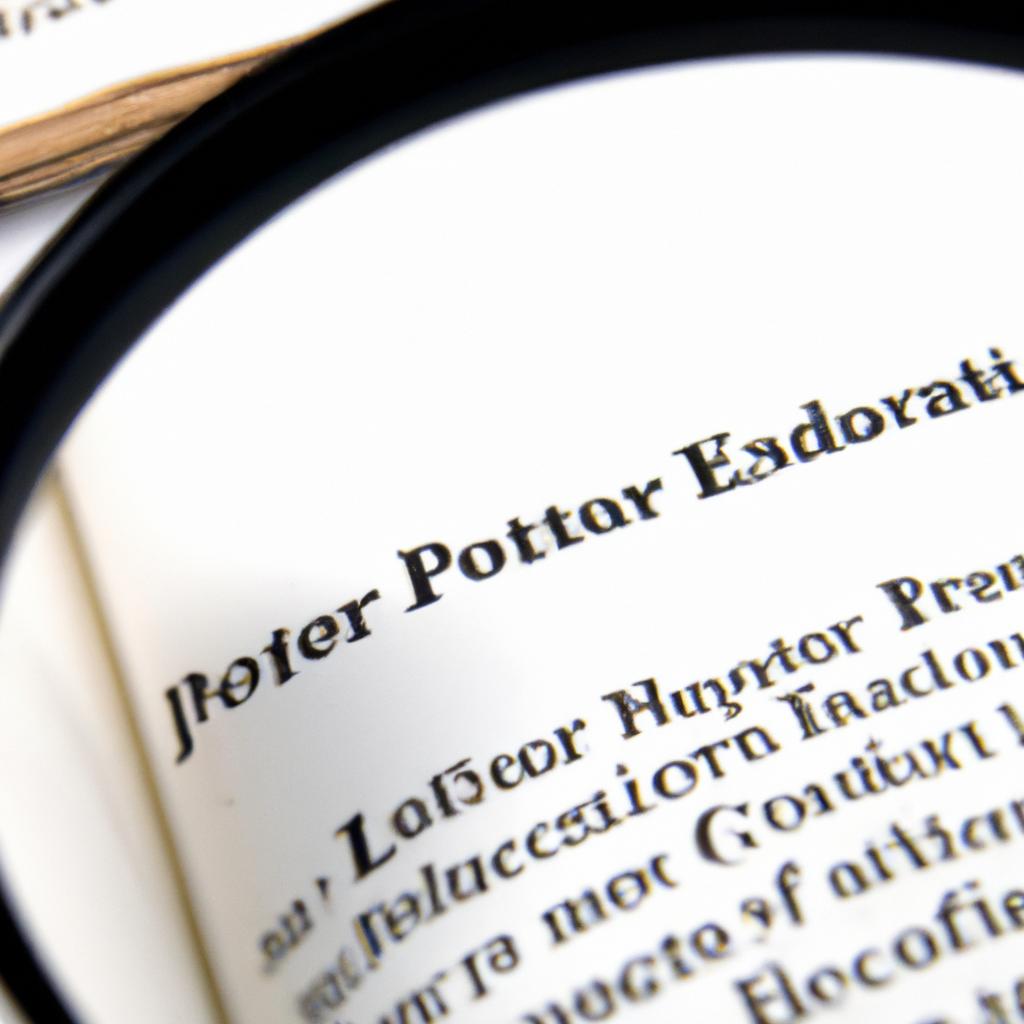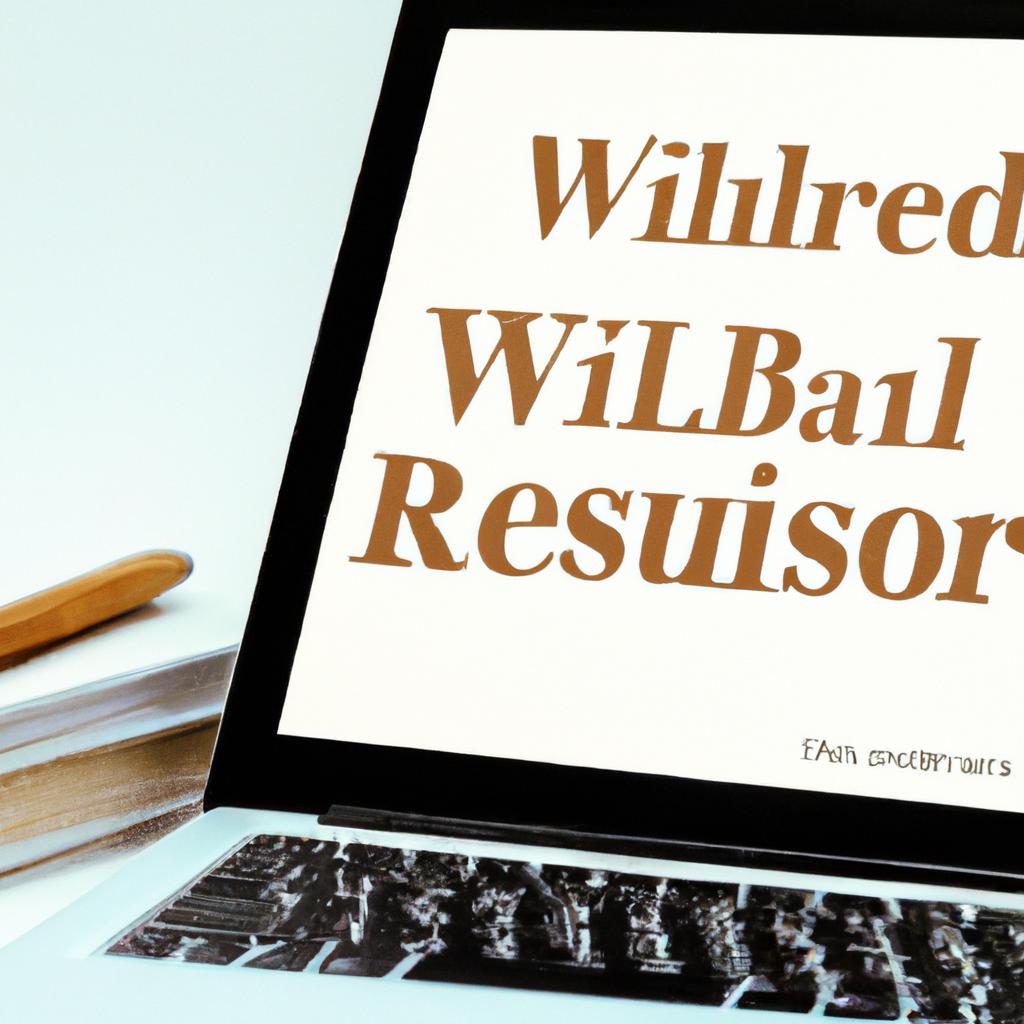In the intricate web of estate planning, the discovery of a loved one’s last will and testament can often feel like searching for a hidden treasure. As experienced lawyers well-versed in the nuances of probate law, Morgan Legal Group in New York City understands the importance of locating a will in order to carry out a deceased individual’s final wishes. Join us as we guide you through the process of uncovering a will, providing you with the necessary tools and knowledge to navigate this essential aspect of estate administration.
Understanding the Basics of Wills and Probate
When it comes to , one essential step is finding out if a will exists. This crucial document outlines how a person’s assets should be distributed after their passing, making it important to locate it in order to carry out their wishes effectively.
There are several ways to find out about a will, including:
- Contacting the deceased person’s attorney or estate planning lawyer
- Checking with the local probate court
- Reviewing the deceased person’s personal files and records

Exploring Official Probate Records
When attempting to locate and access an individual’s will, the official probate records are an essential resource. These records are publicly available and can provide valuable information regarding the existence and contents of a will.
By , individuals can determine if a will exists for a specific individual and where it is located. This process involves searching through court records, which may include information on the deceased person’s assets, debts, and beneficiaries.**Official probate records can also offer insights into the probate process, including the appointment of an executor and the distribution of assets according to the terms of the will.**

Utilizing Online Resources for Will Searches
When it comes to locating a will, utilizing online resources can be an invaluable tool. There are various platforms and databases available that can assist in the search process, making it easier to locate important documents. By utilizing online resources, individuals can save time and effort in finding out about a will.
Some online resources that can be helpful in will searches include:
- Probate Court Websites: Many probate courts have searchable databases that allow individuals to locate wills and other estate documents.
- Online Will Registries: Some websites offer services to register wills, making it easier for family members to locate them in the future.
- Public Record Databases: Sites like Ancestry.com or FamilySearch.org may have information on wills and probate records that can aid in the search process.

Consulting with Estate Planning Experts for Assistance
When it comes to finding out about a will, consulting with estate planning experts can provide invaluable assistance. At Morgan Legal Group in New York City, our team of experienced lawyers specializes in estate planning, probate, elder law, Wills, and trusts. Through our expertise and knowledge in this area, we can guide you through the process of locating and understanding a will.
One important step in finding out about a will is to gather any relevant information and documentation. This may include the deceased person’s full name, date of birth, Social Security number, and any known details about their assets and liabilities. Additionally, it is helpful to identify any potential locations where the will may be stored, such as with the deceased person’s attorney, at a bank safe deposit box, or filed with the probate court. Our team at Morgan Legal Group can assist you in conducting a thorough search and navigating the legal requirements associated with obtaining a copy of the will. Trust us to provide the guidance and support you need during this process.
| Benefits of Consulting with Estate Planning Experts | Reasons to Choose Morgan Legal Group |
|---|---|
| Expertise in estate planning laws and regulations | Specializes in estate planning, probate, elder law, Wills, and trusts |
| Guidance through the process of locating and understanding a will | Experienced team of lawyers in New York City |
Q&A
Q: What steps can I take to find out if a will exists?
A: To determine if a will exists, start by checking with the deceased person’s close family members or friends. They may have knowledge of the existence of a will.
Q: Where else can I look for a will?
A: You can also inquire at the deceased person’s lawyer’s office or consult the probate court in the jurisdiction where the person lived.
Q: What if I can’t find any information about a will?
A: If you are unable to locate a will through the aforementioned methods, you may consider hiring a private investigator who specializes in locating missing documents.
Q: Is there a time limit for finding out about a will?
A: Generally, there is no specific time limit for finding out about a will. However, it is recommended to act promptly to ensure the timely handling of the deceased person’s estate.
Q: What should I do if I locate a will?
A: If you come across a will, it is important to ensure that it is valid and take the necessary steps to have it probated in the appropriate court. Consulting with an estate attorney is advisable in such situations.
Concluding Remarks
In conclusion, discovering the existence of a will is a crucial step in the probate process. By following the outlined steps and exploring various avenues, you can effectively determine if a will exists and take the necessary actions accordingly. Remember, seeking legal advice from a qualified professional is always recommended to ensure a smooth and efficient resolution. Stay informed, stay proactive, and empower yourself with the knowledge needed to navigate the complexities of estate planning.
 How to Find Out About a Will: A Comprehensive Guide
How to Find Out About a Will: A Comprehensive Guide
A will is a legal document that outlines an individual’s final wishes for how their assets and possessions will be distributed after their passing. It also includes instructions for appointing an executor to manage the distribution of the estate. While the topic of wills can often be uncomfortable to think about, it is an important aspect of estate planning that everyone should consider. In this guide, we will discuss the various ways to find out about a will and why it is crucial to know this information.
Why is Finding Out About a Will Important?
Before we dive into the different methods of finding out about a will, let’s first understand why knowing about the existence of a will is essential. When a person passes away, their estate goes through a legal process called probate, where the will is validated and the assets are distributed according to the instructions in the will. If the deceased had a will, it makes the probate process much more straightforward and efficient.
Without a will, the distribution of assets becomes more complicated and can result in disputes among family members. It is also possible for the state to take control of the estate if the deceased has no will, resulting in assets being distributed to individuals not of the deceased’s choosing. By finding out about a will, you can ensure that the wishes of the deceased are carried out and avoid unnecessary legal complications and family conflicts.
How to Find Out About a Will
There are various avenues you can explore to find out if someone has a will. Here are some of the most effective ways to discover this information:
1. Check the Probate Court: The probate court is responsible for handling the distribution of a person’s estate after their passing. As the will is a critical document in this process, the probate court will likely have a copy of the will on file. You can contact the probate court in the county where the deceased lived or owned property and request information about the existence of a will. Many probate courts also have online databases that you can search through for will records.
2. Contact the Executor: The executor is the person designated in the will to oversee the distribution of the estate. If you know who the executor is, you can reach out to them directly and ask about the will. They should have a copy of the will on hand and will be able to inform you of its contents and the probate process.
3. Speak to Family Members or Friends: If you were close to the deceased, it is possible that they may have confided in you about the existence of a will. In this case, you may already have some information about the will and can reach out to other family members or friends to confirm its existence or discuss its details.
4. Look for Physical Copies: If you know where the deceased kept their important documents, such as a safe or a desk, you can search through those areas for a physical copy of the will. People often keep their will in a secure location that is easily accessible to their loved ones.
5. Hire a Probate Attorney: If you have reason to believe that the deceased had a will but cannot find a physical copy or any other evidence, it may be worth hiring a probate attorney. They can conduct a thorough search for the will and assist with the probate process.
What to Do After Finding Out About a Will?
Once you have confirmed the existence of a will, it is essential to review its contents carefully. The will may include instructions for the distribution of the deceased’s assets, as well as details about any debts or taxes that need to be paid. It is crucial to follow the instructions in the will as closely as possible to ensure that the wishes of the deceased are carried out.
If you are the executor named in the will, you will be responsible for overseeing the probate process. This involves gathering and managing the assets, paying any debts and taxes, and distributing the remaining assets according to the will’s instructions. If you are not the executor, it is still essential to communicate with the executor to ensure that the probate process is handled correctly.
Final Thoughts
In conclusion, finding out about a will is crucial for various reasons. Not only does it simplify the probate process, but it also ensures that the wishes of the deceased are carried out. To discover a will, check with the probate court, contact the executor, speak to family and friends, search for physical copies, or hire a probate attorney. Once you have confirmed the existence of the will, make sure to review it carefully and follow its instructions closely. By doing so, you can honor the final wishes of your loved one and avoid any complications during the probate process.

